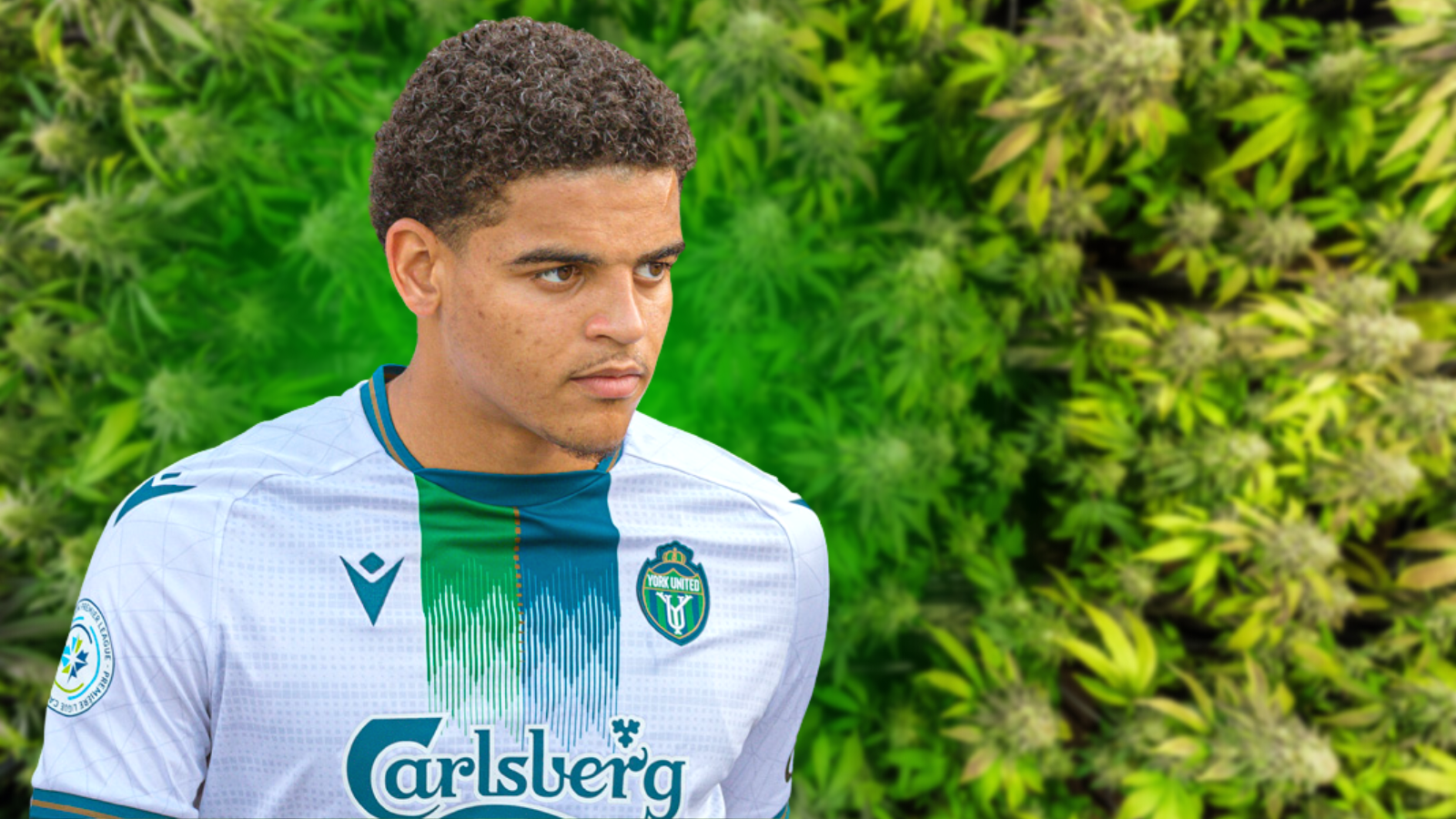In the realm of professional sports, where rules and regulations serve as the bedrock of fair competition, unexpected circumstances can shed light on the intricate balance between legality and ethics. A recent incident involving York United FC’s striker, Osaze De Rosario, has once again ignited the discussion on the presence of prohibited substances in sports and the challenges that athletes face in navigating this complex landscape.
Osaze De Rosario’s Suspension
In a surprising turn of events, Osaze De Rosario, a young talent in the soccer world, has found himself suspended for a month following a positive test for THC, a component of cannabis. The suspension was a result of an in-competition urine test conducted on October 1. As the son of former Canadian international star Dwayne De Rosario, Osaze’s journey in the soccer arena has taken an unexpected detour.
Top Reads: Keep Your Skin Refreshed and Soothed with Assuage Sunshine
Canadian Centre for Ethics in Sport (CCES)
At the heart of this decision lies the Canadian Centre for Ethics in Sport (CCES), a pivotal organization tasked with upholding the ethical standards within sports. The CCES has a crucial role in ensuring that athletes adhere to the regulations set forth to maintain the integrity of competitive sports. This incident underscores the CCES’s commitment to enforcing these regulations impartially.
THC and Prohibited Substances
THC, or tetrahydrocannabinol, is a psychoactive component present in cannabis. It is no stranger to controversies, as its inclusion in the World Anti-Doping Agency’s (WADA) list of prohibited substances has sparked discussions worldwide. The rationale behind this prohibition is rooted in the potential performance-enhancing effects that THC can offer, giving athletes an unfair advantage over others.
Legalization of Cannabis in Canada
The situation takes an interesting turn when one considers that cannabis consumption is legal in Canada. However, this legality stands in stark contrast to the regulations governing professional sports. The case of THC serves as a reminder that while certain substances may be legal for general consumption, their use in sports competitions can alter the level playing field that athletes strive for.
De Rosario’s Statement
Osaze De Rosario, in response to the positive test, expressed his genuine surprise and remorse. He stated that the consumption of THC was unintentional, attributing it to an unlabelled dessert he consumed at a dinner gathering shortly before a match. Despite the legality of cannabis consumption in Canada, he acknowledged the significance of abiding by in-competition regulations and accepted the imposed sanction.
Impact on York United FC
De Rosario’s absence will undoubtedly impact York United FC’s performance. His notable contributions, including three goals and leadership in assists and shots, underscore his significance within the team. The suspension raises questions about the team’s strategic adjustments and the potential challenges they may face during his absence.
President and GM’s Perspective
Angus McNab, the president, and general manager of York United FC, expressed the team’s support for De Rosario’s decision to comply with the CCES’s sanction. McNab believes that De Rosario’s consumption of THC was inadvertent and occurred out of competition. However, he also voiced his disappointment with the fact that a sanction was necessary, especially considering the legal status of THC consumption in Canada.
Comparison with Previous Case
Interestingly, De Rosario’s case is not an isolated incident within the Canadian Premier League (CPL). HFX Wanderers’ forward Ludwig Amla recently faced a two-year ban due to the presence of terbutaline, a prohibited beta-2 agonist, in his doping test. This comparison highlights the varying nature of doping violations and their corresponding consequences.
Legal vs. Ethical Perspective
The situation raises thought-provoking questions about the distinction between legality and ethicality in sports. While some substances may be legally consumed, their use can breach the ethical principles that underpin fair competition. Sports organizations play a pivotal role in ensuring that athletes not only adhere to the letter of the law but also uphold the spirit of integrity that sports demand.
Public Perception and Discussion
The incident has triggered public discussions, with opinions diverging on the subject. Some argue that the presence of THC in the prohibited list is justified due to its potential effects on performance, while others question whether substances legal in daily life should be scrutinized within sports. This incident serves as a microcosm of the broader discourse surrounding cannabis use in competitive athletics.
Lessons for Athletes
For athletes, De Rosario’s case serves as a cautionary tale. It underscores the need for vigilance in monitoring consumed substances, even inadvertently. Athletes must recognize that even seemingly innocent choices can have profound consequences on their careers and the reputation of the sports they represent.
Potential Changes in Regulations
As the landscape of cannabis legislation evolves globally, it raises speculation about potential revisions to WADA’s list of prohibited substances. The dichotomy between legality and sports regulations prompts conversations about whether substances like THC should remain on the prohibited list or undergo reevaluation based on their legal status.
Conclusion
In conclusion, the suspension of Osaze De Rosario sheds light on the intricate web of regulations, ethics, and fairness in the world of sports. This incident underscores the complexities of balancing legal norms with the demands of competitive integrity. It serves as a reminder that the pursuit of fair competition necessitates the collaboration of athletes, sports organizations, and regulatory bodies.
FAQs
- Is THC legal in Canada?
- Yes, THC is legal for general consumption in Canada. However, its use is prohibited in competitive sports due to its potential performance-enhancing effects.
- Why was De Rosario suspended if he consumed THC unknowingly?
- Despite unintentional consumption, athletes are responsible for the substances they ingest. Compliance with in-competition regulations is essential to ensure a level playing field.
- What is the role of the Canadian Centre for Ethics in Sport (CCES)?
- The CCES is tasked with upholding ethical standards in Canadian sports. It enforces regulations to maintain the integrity of competitions.
- How does De Rosario’s case compare to Ludwig Amla’s situation?
- Both cases involve doping violations, but with different substances. Amla’s case highlighted the presence of terbutaline, a prohibited beta-2 agonist.
- Could the positive test have been avoided?
- Yes, athletes must be diligent in monitoring their consumption, even of legal substances, to prevent unintentional violations of sports regulations.



COMMENTS